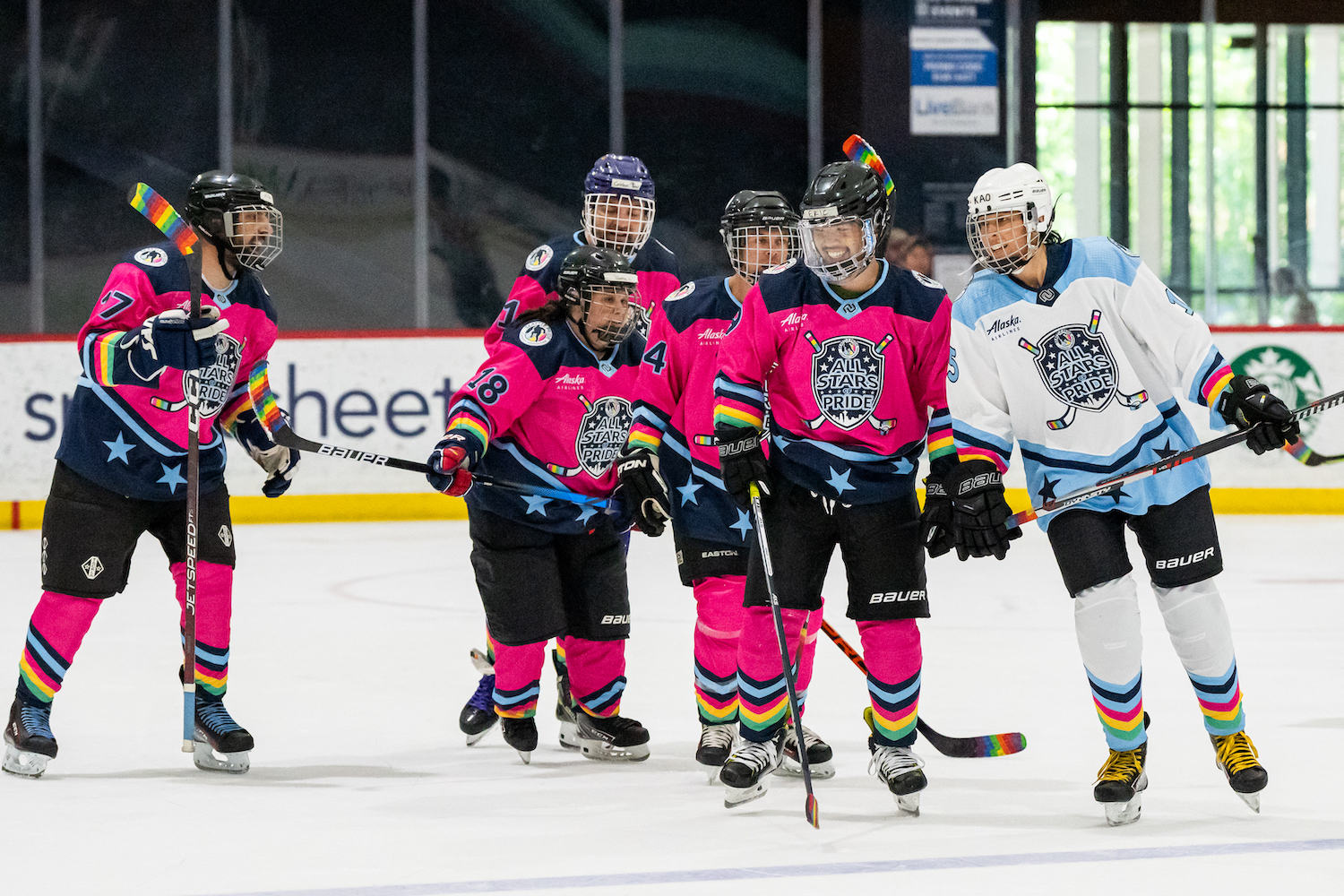Effective Date: March 23, 2024
This Participant Conduct Policy (the “Policy”), dated as of the Effective Date provided above, constitutes a legally binding agreement made between Seattle Pride Hockey Association, Inc. (“SPHA”) and you (the “Participant”) upon completion of registration and applies to all events, programs, league and tournaments (herein after referred to as “Function(s)”) offered and produced by SPHA. By registering for any Function(s) through SPHA, Participant hereby agrees to be bound by this Policy.
How to conduct oneself at SPHA Functions
Fair play and respect are the backbone of any successful recreational sports program. In order for a positive environment to be created, it is imperative that all Participants have respect for all participants/players, coaches, officials, administrators, spectators and the sport of hockey. Hockey is a game demanding high levels of concentration and skill. Participants must recognize the importance of following all staff and/or coach instructions and agree to follow such instructions.
SPHA reserves the right to refuse admission to, or eject, any Participant whose conduct is deemed by SPHA to be disorderly, who uses vulgar and/or abusive/offensive language, and/or who fails to comply with any rules, terms, and conditions applicable to any Function(s) and/or any facility’s rules in which SPHA operates out of. Any dues/fees paid in advance of a Participant’s removal from the Function(s) and/or facility, are and will remain fully non-refundable.
Types of misconduct that may result in suspension, ejection or other appropriate disciplinary action include, but are not limited to, the following:
It is recommended that each Participants review and familiarize themselves with any applicable Function rules and/or policies that may be specifically issued for a Function, as such rules and/or policies may have specific guidelines contained within related to that Function.
SPHA reserves the right to refuse service and/or prohibit or terminate access to Function(s), in whole or in part, for any or no reason, at any time in SPHA’s sole discretion, with or without notice to Participant. SPHA shall in no way be held liable for any consequence which results from the decision.
We’re here to help.
If you have any questions or need help interpreting the above Policy, please write us at [email protected].

Be among the first to know about programs & tournaments, including our next Seattle Pride Classic 2024, beginning Friday, June 7, 2024. Don't worry, we promise not to flood your inbox.